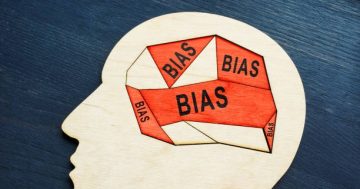Manfred F. R. Kets de Vries and Katharina Balazs* say it’s important to understand how past experiences can trigger an inappropriate response in the present.

Photo: Ryan McGuire
Dirk was puzzled about what just happened.
To the best of his knowledge, he had only asked Jerome (a recently hired senior executive) to deal more proactively with some of the organisation’s clients.
But Jerome had suddenly become angry, defensive, and stalked out of his office.
Jerome, for his part, was also confused.
Why had he reacted like that?
Usually he was quite in control of his emotions.
Somehow, however, Dirk’s comments had hurt, and he had reacted without thinking.
We can understand something of what happened between Jerome and Dirk by understanding that the human brain is wired for pattern recognition.
In short, our brain acts as a sort of pattern matching and pattern generating machine, and when things aren’t already in patterns it tries to make sense of what it sees by fitting it into familiar shapes.
Our previous experiences are used as a shortcut for understanding and interpreting new information.
It makes sense: if a match can be found between new and old data, then our stored knowledge can be applied to the new situation at much less “cost” than our brain having to figure it all out again.
The same kind of sense-making process is at play when it comes to our relationships with other people.
Based on our existing “relationship data bank,” our brain unconsciously organises new experiences in such a way that they fit the relationships we are familiar with.
Thus, when we are trying to understand someone we don’t know well, our brain tricks us into assuming that this person will behave similarly to a previously experienced other.
We feel good about a person who remind us of loved ones, while alarm bells will go off in our brains if that person reminds us of previous acquaintances who caused us pain.
In this way, we often attribute to people characteristics that aren’t really there, automatically and without thinking.
And we tend to act towards people in the present based on our experiences from the past.
After calming down, Jerome realised that Dirk reminded him of his overbearing father.
When Dirk leaned over his big wooden desk and told Jerome to be more proactive, it reminded Jerome of how his father used to lean over the kitchen table and ask why he wasn’t more of a go-getter.
His overreaction was almost exactly what he had done in fights with his father, too — getting angry and storming away.
This “erroneous” interpersonal connection was first described by Sigmund Freud in his famous Dora case under the name of transference.
Trying to understand this unsuccessful therapeutic intervention with his patient, he came to realise that its reason lay in his failure to recognise the transfer of emotions held by Dora for a person from her past on to Freud himself.
Given that the original sources of our transference reactions are important people of our early years, such as parents and other caregivers, as well as siblings and close family members, transference reactions tend to be directed toward people who perform roles similar to those originally carried out by these people.
Thus, doctors, teachers, celebrities, and authority figures in general are particularly prone to activate transference responses.
It is transference when you fall in love at first sight with the person who reminds you of someone with whom you had once a passionate love affair.
It is transference when you trust someone instantly, without realising that this person reminds you of a trusted figure from the past.
It is transference if you are enthralled by a boss who resembles an encouraging and supportive grandmother.
It’s also transference if you take an immediate dislike to someone who reminds you of a negative influence in your past.
If you have ever had an emotional reaction to someone which was clearly too intense for the situation, you have most likely experienced a transference reaction.
As transference reactions are essentially a reliving of the past, the reaction they trigger is often inappropriate, and even bizarre, in the context of the present.
Transference reactions are not troublesome in moderation.
They can create problems, however, when our reactions become excessive, and when they prevent us from building an appropriate relationship with someone who can have a strong influence on our lives.
And when we are susceptible to repetitive, excessive transference reactions, we are most likely troubled by some deeper issues or unfinished business from the past.
While our unconscious transference reactions can easily lead us astray, creating awareness of them can help us to become more conscious of our hidden motivations and learn to avoid repeating mistakes and thus to be more in control of our lives.
Reflect on patterns of behaviour that have got you into trouble, and where you feel that your judgment has repeatedly been poor.
To help you in analysing what has happened, ask yourself the following questions:
- What kinds of people make me feel anxious, angry, sad, or happy?
- What do I like or dislike about them?
- And who in my past do these people remind me off?
- How are they similar or different?
Discovering the ghosts of the past is the first step towards not letting them interfere with life in the present.
Dealing with transference issues on your own can be challenging.
You might consider enlisting a therapist or coach.
With their help, past conflicts can be worked through and left where they belong — in the past.
* Manfred F. R. Kets de Vries is a Professor of Leadership Development and Organisational Change at INSEAD in France, Singapore, and Abu Dhabi.
Katharina Balazs is an Associate Professor at the European School of Management in Paris.
This article first appeared at hbr.org.











